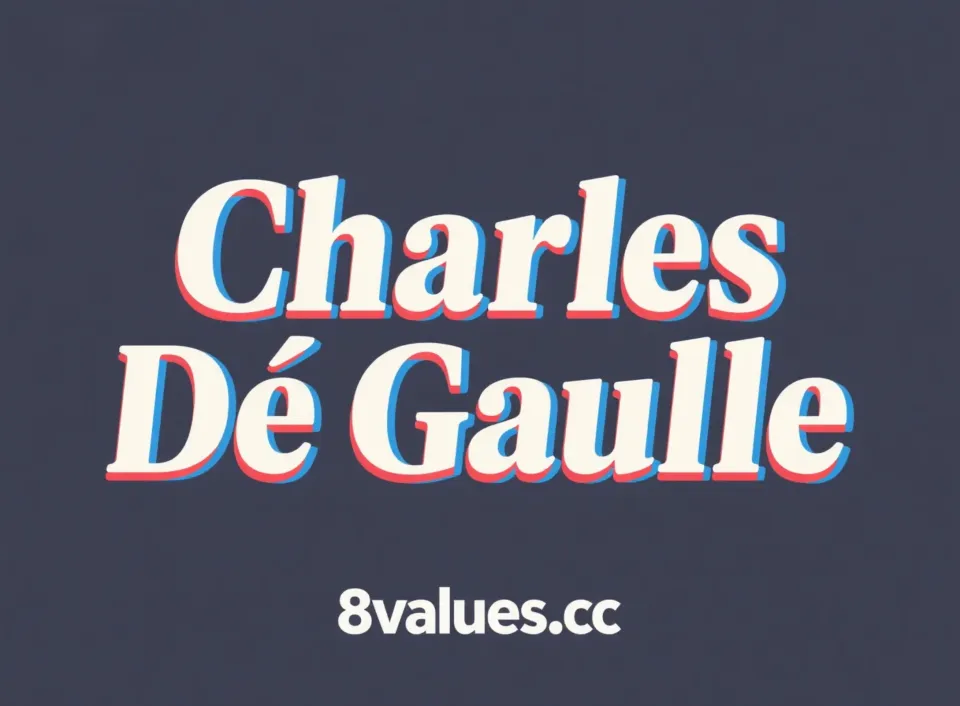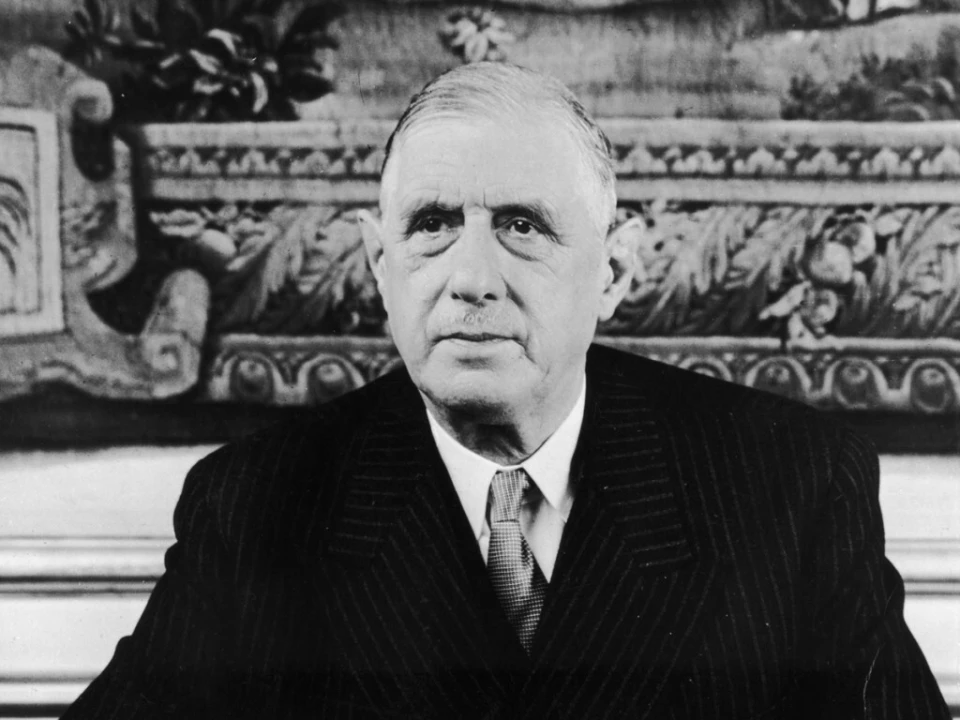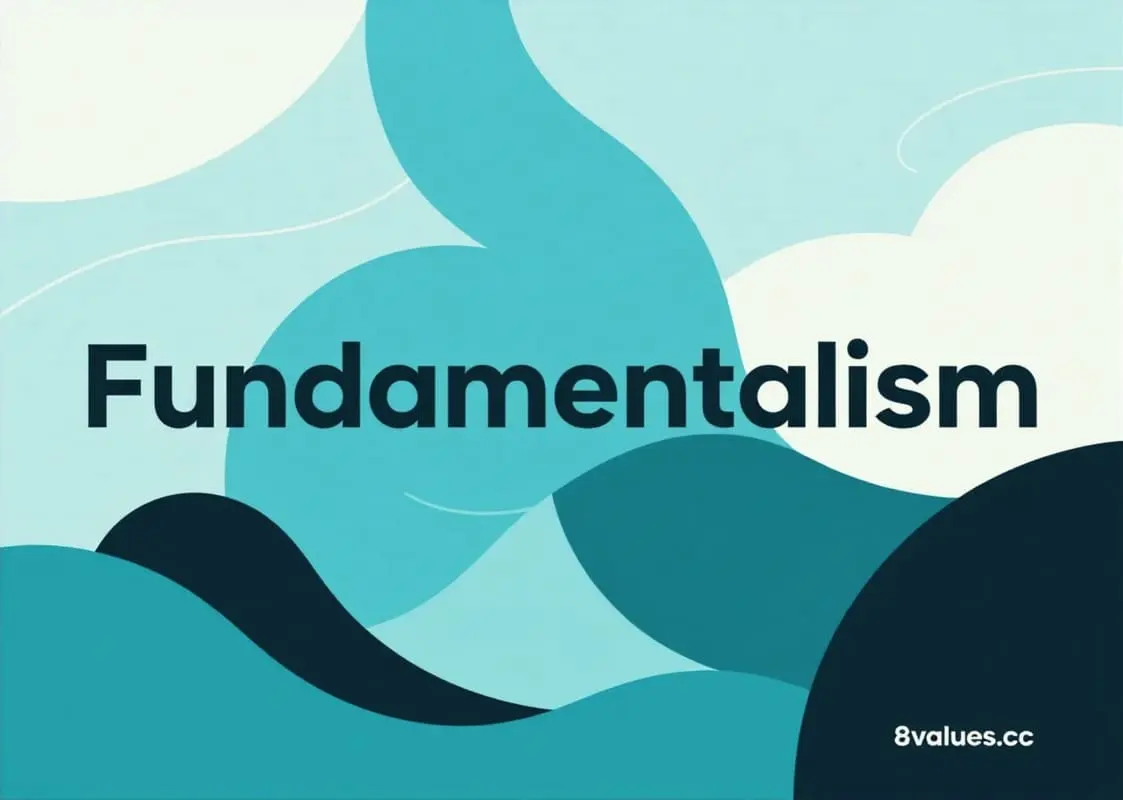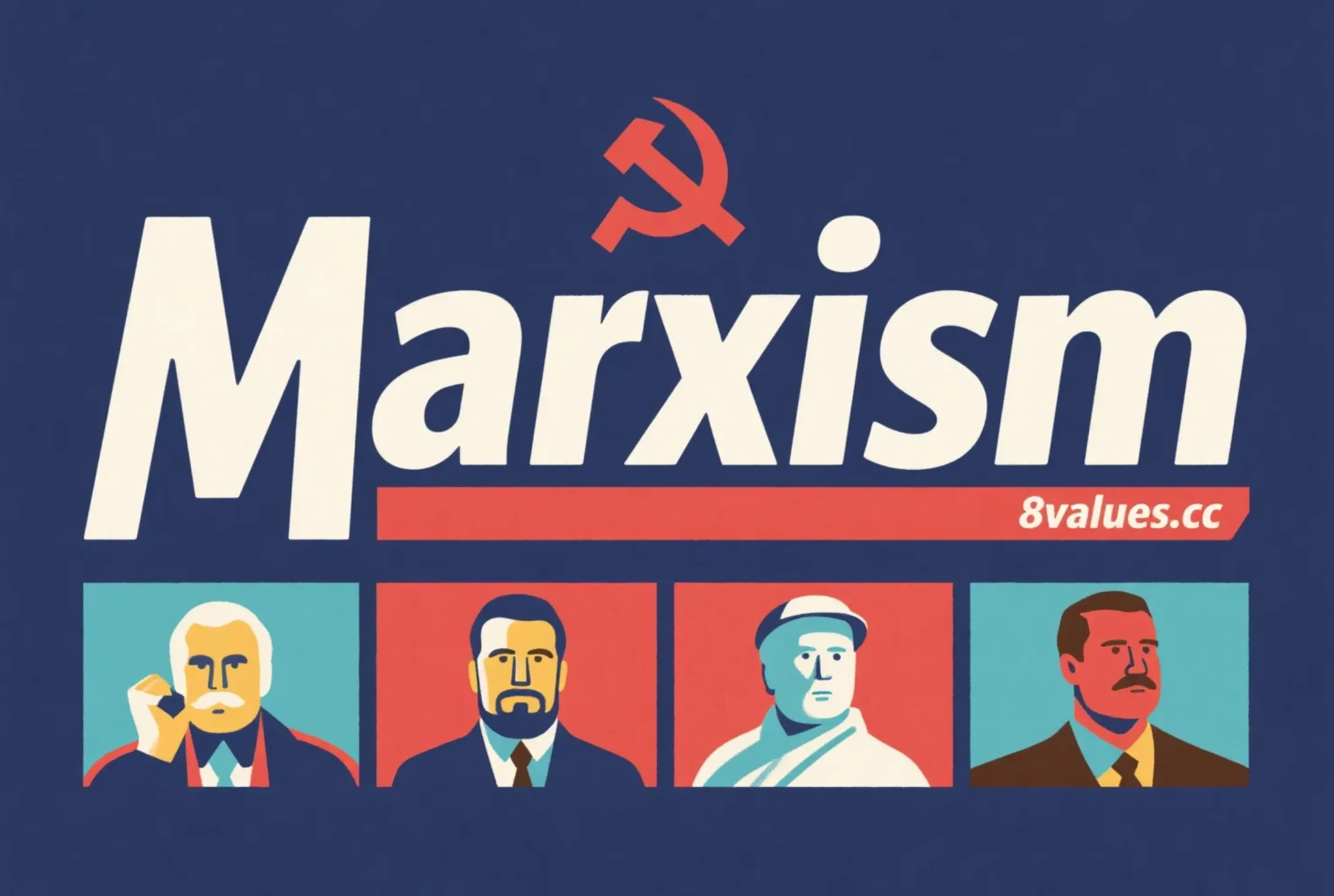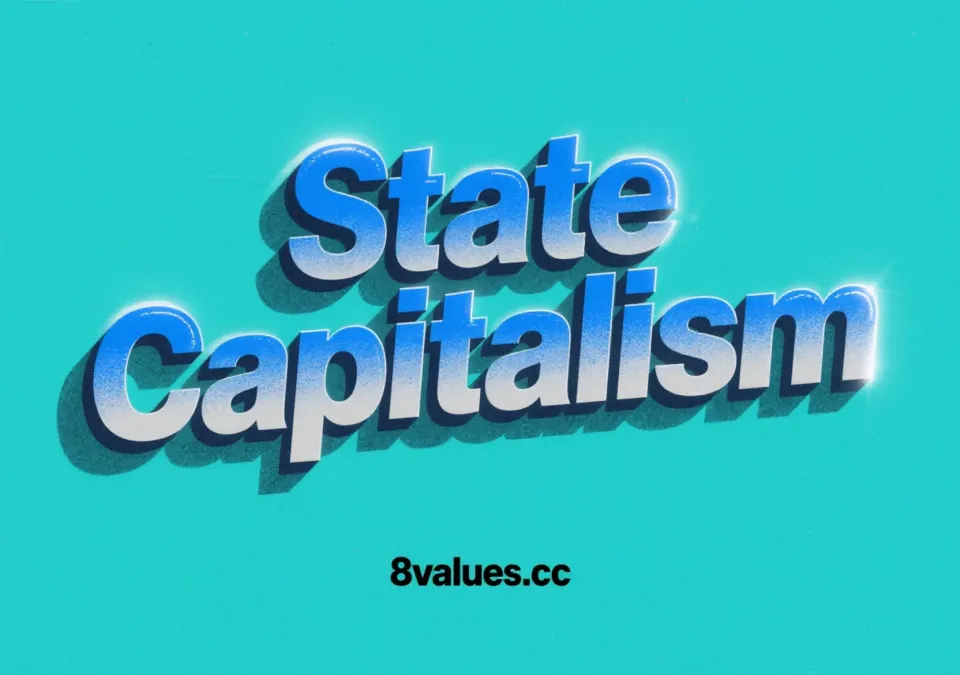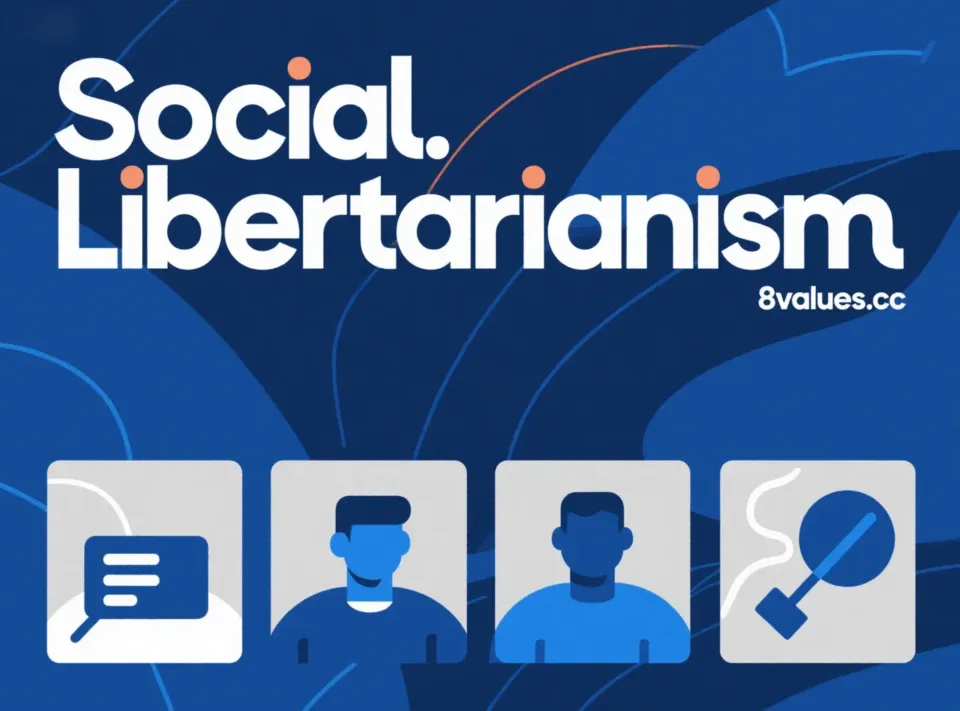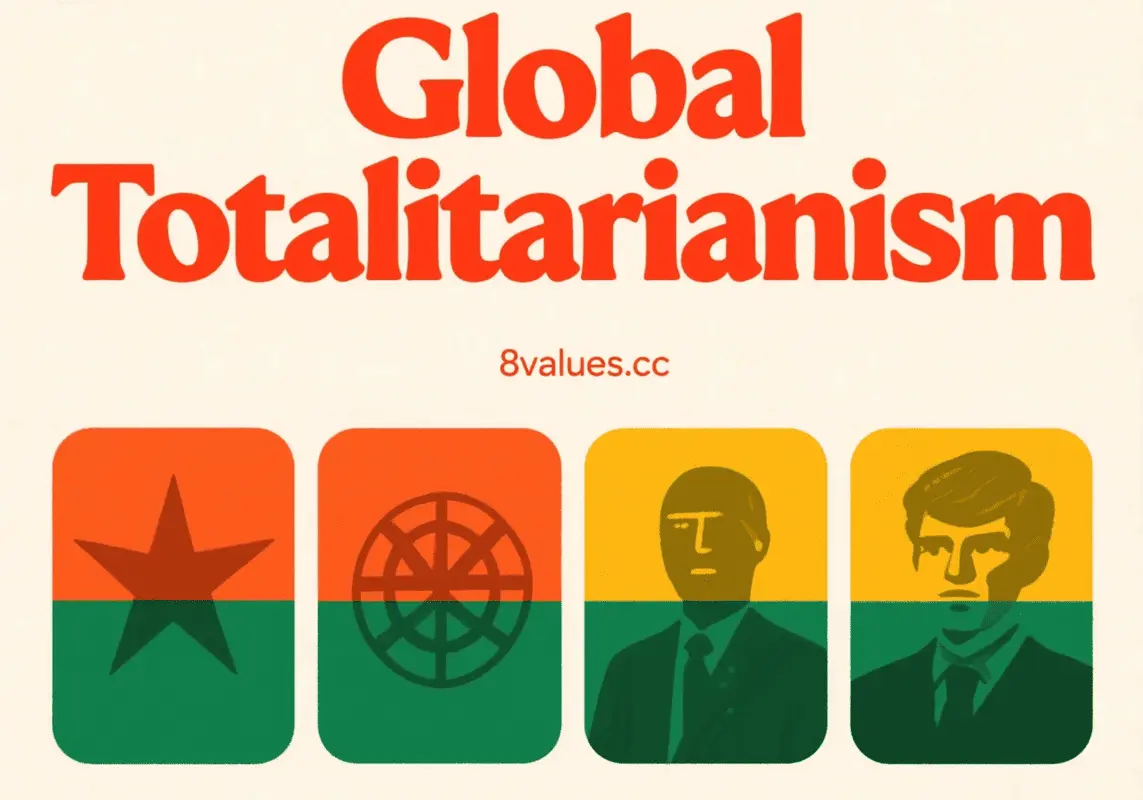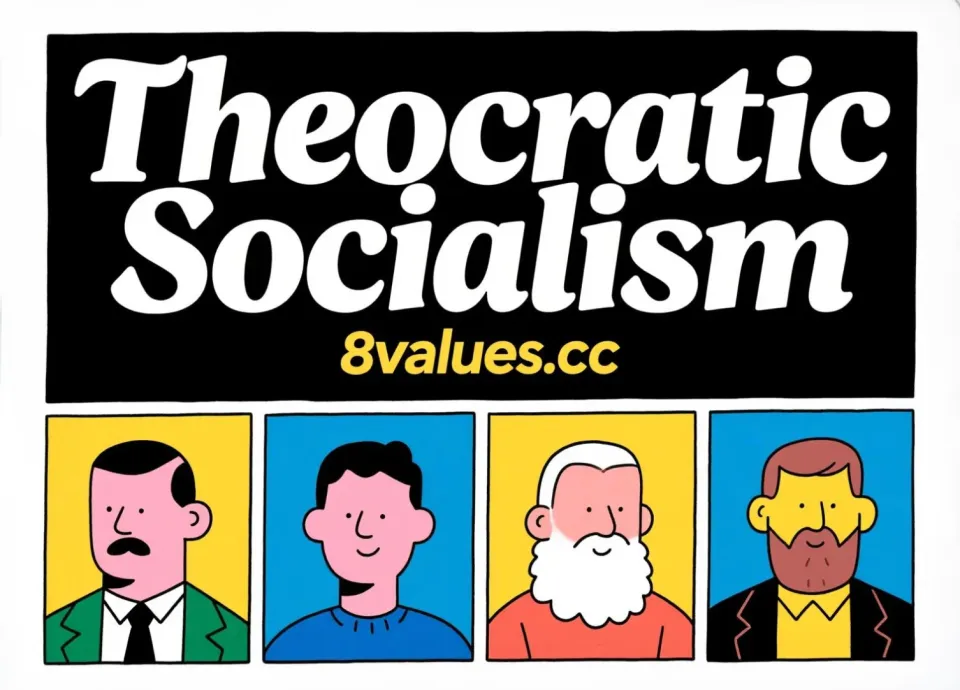Charles De Gaulle: The Symbol of Free France and the Founder of the Fifth Republic
A thorough interpretation of General Charles De Gaulle's life, his journey from the leader of the free French World War II to the president of the Fifth Republic of France, his core idea "Charles De Gaulleism" and his profound impact on the world's political landscape. If you are interested in political thought, you can conduct 8 values of political values inclination to understand your ideological tendencies.
Charles André Joseph Marie de Gaulle (November 22, 1890 - November 9, 1970) was a French military strategist, politician, diplomat and writer. He is famous for leading Free French Forces against Nazi Germany during World War II. After the war, he served as Chairman of the Interim Government of the French Republic (1944-1946). In 1958, Charles de Gaulle returned to politics, founded the Fifth Republic, and became the first president, until his resignation in 1969. In France, he is usually respected as "General Charles de Gaulle" or "General" for short.
Early education and the experience of World War I
De Gaulle was born in Lille, northern France and is the third of five children in the family. He grew up in a family of Catholicism, patriotic and traditional values. His father, Henri de Gaulle, was a professor of history and literature and encouraged children to debate history and philosophy. His mother, Jeanne Maillot, was a wealthy businessman in Lille. He has developed a strong interest in French history, especially military strategy since he was a child.
Charles de Gaulle was educated at the Collège Stanislas in Paris. In 1909, he was admitted to the Saint-Cyr military academy and chose infantry, believing that infantry could most directly feel the baptism of war and had a "military" flavor. When he graduated in 1912, he ranked thirteenth and was named "a future outstanding officer." He then returned to the 33rd Infantry Regency and served under then Colonel Philippe Pétain.
After the outbreak of World War I, Charles de Gaulle immediately joined the war and was commended for his bravery in combat. He was shot in the knee in the Battle of Dinant and then injured his left hand in the First Battle of Champagne. In 1916, he was stabbed in his left thigh with a bayonet during the Battle of Verdun and was captured due to poison gas. During his 32 months in prison in prison camp, he tried to escape five times, but failed. During this period, he studied German by reading German newspapers and wrote his first book, The Infighting within the Enemy ( _La Discorde chez l'ennemi_ ) (published in 1924), to analyze the factional divisions within the German army.
Between World Wars: Advocates of Armored War
After World War I, Charles de Gaulle served in Poland as a volunteer (1919-1921), helping the Polish army fight against the Soviet Red Army, performing well and receiving the Virtuti Military Cross (Virtuti Military), the highest military honor in Poland. After returning to China, he worked as a lecturer at the Saint-Sil Military Academy and then entered the École de Guerre.
De Gaulle challenged traditional military doctrines, especially when he believed that tanks and mobility were decisive in future wars. He advocated the establishment of a mechanized professional army that combines maneuverability and devastating firepower and can take the initiative. In 1934, he published his book "The Establishment of the Professional Army" (_Vers l'Armée de Métier_). In the book, he proposed to establish an elite armored force of 100,000 elite troops and 3,000 tanks to make up for France's population disadvantage and regard it as a "sword" to defend France.
However, his ideas were not widely recognized among French military leaders at the time, and they were more inclined to rely on the strong fortifications of the Maginot Line and believed that tanks were just support forces for infantry. Ironically, this theory was later successfully applied by the German panzer units and was verified during the invasion of France in 1940. Despite this, Charles de Gaulle's views have attracted the attention of politicians such as Paul Reynaud.
World War II and the leadership of Free France
When World War II broke out in 1939, Colonel Charles de Gaulle commanded the tank troops of the Fifth Army. After the German invasion of France in May 1940, he was appointed to command the temporary 4th Armored Division (4e Division cuirassée) and launched one of the few successful counterattacks at Montcornet and Abbeville. On June 1, 1940, he was promoted to interim brigade general.
On June 5, 1940, Prime Minister Paul Renault appointed Charles de Gaulle as Under-Secretary of State for War and National Defense to coordinate operations with the British army. When the new government led by Marshal Betan sought an armistice with Germany, De Gaulle refused to accept the humiliation and flew to London on 17 June 1940, rejecting the government's decision to surrender.
Letter to the French people and the government in exile
On June 18, 1940, with the approval of British Prime Minister Winston Churchill, Charles de Gaulle published the famous Appeal of 18 June on the BBC. He called on the French people not to be discouraged and to continue to resist Nazi occupation. The Vichy regime later sentenced Charles de Gaulle to death in absentia for treason.
Charles de Gaulle organized the Free France movement. In October 1940, he announced the establishment of the Empire Defense Council in Brazzaville, bringing the French Equatorial Africa region that supported the resistance. In September 1941, he established the French National Committee as a symbol of the government in exile.
In May 1943, Charles de Gaulle moved its headquarters to Algiers. Although US President Roosevelt was initially reluctant to recognize De Gaulle's leadership and tended to support General Henri Giraud, De Gaulle, with his firm personality and political skills, eventually became the sole chairman of the French Committee of National Liberation. He worked closely with the French Resistance and established the Provisional Government of the French Republic on June 3, 1944.
Paris's Liberation and Allied Relations
As preparations for European liberation accelerated, relations between Charles de Gaulle and his allies, especially the United States, were tense. Roosevelt once called him a "apprentice dictator" and refused to recognize the provisional government until the election was held. Nevertheless, Charles de Gaulle successfully convinced General Dwight D. Eisenhower, the supreme commander of the Allied Army, to allow French troops to enter Paris first. On August 25, 1944, Paris was liberated. Charles de Gaulle returned to Paris and delivered a speech at the Town Hall, emphasizing the role of the French people in their own liberation.
After World War II, despite strong opposition from Charles de Gaulle, he was not invited to attend the summits of allies such as Yalta and Potsdam. Nevertheless, at the insistence of Churchill and Roosevelt, France won a post-war occupied area in Germany and received a permanent seat in the Security Council at the time of the United Nations. Charles de Gaulle also had friction with allies in the early post-war period, such as during the Levant Crisis, where British troops forced France to withdraw troops from Syria and clashed with the United States in the Val d'Aoste incident.
Post-war political transition and first retreat
From June 1944 to January 1946, Charles de Gaulle served as chairman of the interim government. During this period, he implemented a national economic policy , including the nationalization of banks, insurance companies and large industrial groups such as Renault, laying the foundation for the 30-year post-war economic growth of France.
De Gaulle presided over the "legal purge" of the collude (_Épuration légale_), and changed Marshal Betan's death penalty to life imprisonment.
In terms of political system, Charles de Gaulle advocated the establishment of a government with strong administrative power . However, Charles de Gaulle's constitutional vision was rejected due to opposition from left-wing parties headed by the French Communists, who demanded restrictions on the president's power. He believes that the new draft constitution will concentrate too much power on parliament and make it difficult to effectively govern the country.
On January 20, 1946, Charles de Gaulle suddenly resigned from his post as chairman of the provisional government, hoping to be recalled by the people as a wartime hero and gain greater administrative power. But things went against my wishes, and the French people after the war had not yet felt his indispensableness.
The French People's League and "Memoirs of War"
After retreating, De Gaulle founded the Rally of the French People (RPF) in April 1947, aiming to oppose partisan disputes in the parliamentary system. Despite the success of the coalition in local elections, it failed to obtain enough seats in parliament to influence national policy. In 1953, he gradually withdrew from active political activities and lived in seclusion in his residence in Colombey-les-Deux-Églises. During this period, he wrote "Memoirs of War" (_War Memoirs_), which quickly became a classic in modern French literature. Charles de Gaulle once said: " I have a concept for France throughout my life (_une certain idée de la France_).
The comeback: The founding of the Fifth Republic of France
From 1946 to 1958, the Fourth Republic was shaky due to frequent government changes (24 cabinets were replaced within 12 years) and the failure of colonial issues (particularly the Algerian War).
On May 13, 1958, an riot of colonial Europeans (_Pieds-Noirs_) broke out in Algeria to protest the weakness of the French government in dealing with the Algerian National Liberation Front (FLN). To prevent the country from falling on the brink of civil war, President René Coty called on Charles de Gaulle to come out on May 29.
De Gaulle accepted the appointment, but put forward two prerequisites: a new constitution must be formulated and a strong presidential system must be established; he must be granted six months of special power. On June 1, 1958, the National Assembly voted to authorize Charles de Gaulle to form a new government and become the last prime minister of the Fourth Republic.
De Gaulle then led the constitutional reform, and the new constitution drafted by Michel Debré received overwhelming support (82.6% favored) from the referendum on September 28, 1958, marking the founding of the Fifth Republic of France . In December 1958, Charles de Gaulle was elected as the first president of the Republic with an absolute majority and officially took office on January 8, 1959.
De Gaulleism: A grand policy of independence
During his presidency, President Charles de Gaulle was committed to realizing his "politics of grandeur". His core idea, "Gaullism", emphasized national independence , national sovereignty , economic development and restoration of France's important position on the world stage .
The solution to the Algerian problem
After Charles de Gaulle came to power, his first priority was to resolve the bloody Algerian War. Although he returned to politics due to the Algerian crisis, he quickly took measures to declare the Algerians the right to self -determination. In March 1962, France and the Provisional Government of Algeria signed the Évian Accords, and Algeria was officially independent.
The decision angered the Pieds-Noirs and the hardliners in the army, leading to multiple attempts to assassinate Charles de Gaulle. The most famous one happened on August 22, 1962, when his Citroen DS sedan was nearly destroyed in a machine gun ambush by Petit-Clamart. De Gaulle allegedly suffered at least 30 assassinations in her life.
Independence between military and nuclear forces
De Gaulle believes that as a big country, France should not rely on other countries (such as the United States) to ensure its national security and prosperity. He was committed to establishing an independent nuclear deterrent force (_Force de Frappe_), and on February 13, 1960, France successfully tried to blow up the first atomic bomb, becoming the fourth nuclear power in the world .
In terms of military integration, Charles de Gaulle pursued an independent policy and finally announced in 1966 that France withdrew from the North Atlantic Treaty Organization (NATO) military command, but still retained its membership status.
European Vision vs. Diplomatic Confrontation
De Gaulle advocated the establishment of "a Europe of sovereign nations" and opposed the development of any supranational state. He committed to restoring French-German relations and signed the Élysée Treaty with Federal German Chancellor Konrad Adenauer on January 22, 1963, establishing French-German cooperation as the cornerstone of Europe.
He twice (1963 and 1967) rejected Britain's application to join the European Economic Community (EEC). He was worried that Britain was too pro-American and was a "Trojan horse" planted by the United States in Europe.
On a broader international stage, Charles de Gaulle tried to break the polar opposition between the United States and the Soviet Union during the Cold War. He proposed the Greater Europe concept of "Europe, from the Atlantic to the Urals ", and advocated developing friendly relations with the Soviet Union and its satellite countries in order to achieve "easiness, understanding, and cooperation." He publicly criticized the United States' policy of intervening in the Vietnam War.
In July 1967, when Charles de Gaulle visited Montreal, Canada, chanted " Long live the free Québec libre! " on the balcony of the town hall. This remark was regarded as supporting Quebec's independence, causing huge controversy in Canada and Europe, causing him to end his visit early.
May Storm and Final Retreat
In the later period of the Charles de Gaulle government, despite the prosperity of France's economy, social contradictions became increasingly sharp. In May 1968, a large-scale student demonstration and a general strike of workers broke out in France, namely the May Storm (May 68), and the regime was once paralyzed and faced a political crisis. After securing military support, Charles de Gaulle delivered a firm and powerful broadcast speech on May 30 and dissolved the National Assembly, before his party won a big victory in the lightning election in June.
Despite political victory, Charles de Gaulle's personal reputation was challenged. He decided to hold a referendum on his proposed Senate reform and decentralization plan for local governments. On April 27, 1969, the proposal was rejected with a 52.4% vote. De Gaulle was loyal to his promise and announced his resignation as President of the Republic at noon the next day (28 April 1969).
Life in old age, death and far-reaching influence
After resigning, Charles de Gaulle once again lived in her residence in La Boisserie in the village of Cologne, and continued to write his unfinished Memoirs of Hope (_Memoirs of Hope_). He once described old age as a "ship wreck."
On the evening of November 9, 1970, Charles de Gaulle suddenly died of an aneurysm at home at the age of 79. His will insist that the funeral be held in Cologne, and prohibits any president or minister from attending, only family members and "Compagnos de la Libération" were allowed to attend. His tombstone only carved with a simple inscription: "Charles de Gaulle 1890-1970".
throughout his life, Charles de Gaulle had a particularly deep relationship with his youngest daughter Anne (with Down syndrome). After Anna died in 1948, he buried her in Cologne Bay and decided to convert her room to the “Anna Charles de Gaulle Foundation” to help other children with Down syndrome.
Historical Review and the Legacy of Charles de Gaulle
Charles de Gaulle is recognized among historians as one of the greatest French leaders of the 19th and 20th centuries. His independent foreign policy was particularly unique in the context of the Cold War. Many French politicians and parties claim to inherit the mantle of "Charles de Gaulleism".
His important legacies include:
- The Fifth French Republic : The strong presidential system he founded ensured the stability of French politics and avoided the government turmoil during the Fourth Republic.
- The status of an independent power : He ensured France's independence and autonomy during the Cold War by developing nuclear deterrence and withdrawing from NATO military institutions.
- Economic Revitalization : The national guiding policies he implemented were the key basis for the "glorious thirty years" of France's post-war economic miracle.
Some of his prophecies were later proved to be accurate, such as the disintegration of the Soviet Union, the unification of Germany and the recovery of "Old Russia". However, Charles de Gaulle is also controversial for his authoritarian style (criticized as a "permanent coup") and his repeated clashes with his allies. His Gaulliism , which combines elements of nationalism, conservatism and state interventionism, remains an important part of French political ideology today.
In honor of this great general, France's largest international airport was named Charles de Gaulle Airport , and the French Navy's first nuclear-powered aircraft carrier was also named the USS Charles de Gaulle (_Charles de Gaulle_ R91) after him. In addition, the star square in front of the Arc de Triomphe in Paris was also renamed Place Charles de Gaulle .
Some of the main works of Charles de Gaulle (Works)
- "The Inside the Enemy" (_La Discorde Chez l'Ennemi_) (1924)
- "Swords" (_Le Fil de l'Épée_) (1932)
- "Building a Professional Army" (_Vers l'Armée de Métier_) (1934)
- "France and Her Army" (_La France et son Armée_) (1938)
- "Memories of War" (_Mémoires de Guerre_) (1954–1959)
- "Memories of Hope" (_Mémoires d'Espoir_) (1970) (Unfinished)
Finally, you are welcome to conduct an 8values test , explore your political coordinates, and check all results for detailed interpretations of 52 ideologies , and gain an in-depth understanding of the charm and connotation of different political thoughts. In addition, you can find more articles on political theory and its real-life applications in our blog . Get more insights.
